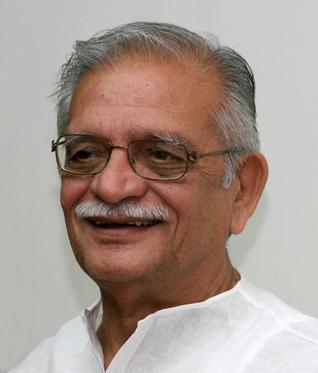New Delhi, Apr 12: Veteran film lyricist and director Gulzar has been chosen for the prestigious Dadasaheb Phalke Award for the year 2013 for his lifetime contribution to Indian cinema.
Gulzar's daughter Megna tweeted soon after the news: Dadasaheb Phalke award for my father. So proud!
Gulzar started his career as a lyricist with the hit song Mera gora ang lai le in Bandini and went on to pen dozens of chartbusters including Tere bina zindagi se, Aanewala pal jaane wala hai, Mera kuchh saamaan and Tujhse naraaz nahin zindagi as well as peppy numbers like Kajra re and Beedi Jalaile.
 As a lyricist, Gulzar is best known for his association with the music directors RD Burman, A. R. Rahman and Vishal Bhardwaj. He has also worked with other leading Bollywood music directors including Sachin Dev Burman, Salil Chowdhury, Shankar Jaikishan, Hemant Kumar, Laxmikant-Pyarelal, Madan Mohan, Rajesh Roshan, Anu Malik, and Shankar-Ehsaan-Loy.
As a lyricist, Gulzar is best known for his association with the music directors RD Burman, A. R. Rahman and Vishal Bhardwaj. He has also worked with other leading Bollywood music directors including Sachin Dev Burman, Salil Chowdhury, Shankar Jaikishan, Hemant Kumar, Laxmikant-Pyarelal, Madan Mohan, Rajesh Roshan, Anu Malik, and Shankar-Ehsaan-Loy.
The acclaimed lyricist and filmmaker has also made highly acclaimed films like Parichay, Koshish, and Kinara. He also directed National Award winning films Mausam and Maachis as well as the fun movie Angoor, which was an adaptation of Shakespeare's The Comedy of Errors.
The 79-year-old was also awarded with the the Padma Bhushan in 2004 for his contribution to the arts and the Sahitya Akademi Award in 2002. He also won the Oscar for Best Original Song in 2009 for Jai Ho (from Slumdog Millionaire) with AR Rahman.






Comments
Add new comment